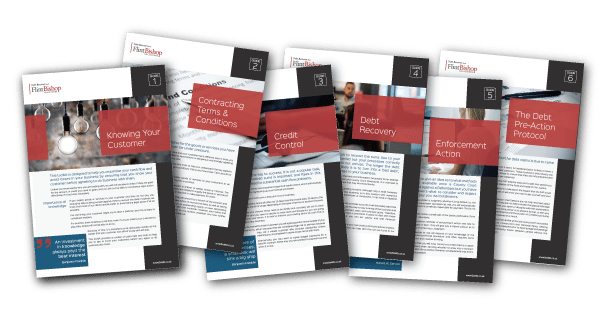You’ll know all too well that when a judgment has been granted you still have some way to go to collect your debt.
The ‘High Court Enforcement Officers’ can help you enforce a payment.
But as of 6th April 2014 there are new changes to how they are allowed to do this; changes that might make it harder for you to get paid.
That’s because:
- Your debtors will have more time to hide valuable assets to prevent you taking them to pay off the debt,
- The cost of sending in Enforcement Officers (formerly called bailiffs) has gone up, meaning this approach is more costly, and
- There are more restrictions on the sort of possessions you can seize.
This article is designed to give you more details of these changes. It also gives you useful advice on how you can avoid these issues all together.
Debtors are now given notice of debt collection
Probably the biggest area of contention – debtors are now given seven days’ notice before being visited by an Enforcement Officer and goods are taken. And this notice can be given in any form whether it be email, fax or letter.
Unfortunately, this means your debtor can easily hide any assets of value so Enforcement Officers can’t seize them to set-off against the debt.
In some cases, your debtor may even get more than 7 days to act. For example, if you instruct an Enforcement Officer to act on your behalf and notice is sent to the debtor on Friday 11th April, the following scenario could occur –
- Friday 11th April – Notice sent to debtor
- Monday 14th April – Notice deemed served
- Tuesday 15th April – Day 1
- Friday 18th April – Good Friday (Excluded)
- Sunday 20th April – Sunday (Excluded)
- Monday 21st April – Bank Holiday (Excluded)
- Thursday 24th April – Day 7
- Friday 25th April – Enforcement Agent can visit debtor
This is an extreme example, but Sundays, Bank Holidays and Christmas Day are all excluded from the seven day notification period.
So, unless you raise this at court, which has the ability to reduce the notice, you may find items could be hidden from you.
Goods that can’t be seized
Certain goods belonging to a debtor are exempt. That has always been the case. But now they include basic things like a fridge, washing machine and even medical aids.
As you know, before the 6th April nothing used for business trade could be seized. But now your Enforcement Officer can take everything whether it be used for business or not, as long as the assets don’t exceed £1,350 per item.
Time limits
If you’ve not enforced control of goods in the first twelve months of a judgment you’ll now need to apply for an extension to the court. But you will need to give reasonable grounds as to why this wasn’t done sooner.
Vulnerable debtors
The courts will now give a special allowance to ‘vulnerable’ people, meaning that they will get longer to pay their debts.
Debt collection visits
New rules have been issued for Enforcement Officers which are –
- Officers may take control of goods any day of the week
- Officers may take control of goods at a residential property between 6am and 9pm (unless the court orders otherwise)
- Officers may take control of goods at a commercial property at any time provided they are open for trade
- Officers may only enter premises through a door or usual means of entry. They no longer have the right to enter through a window or skylight.
The cost of enforcement services has now gone up
The fees for using the court enforcement system for debt collection have now increased, meaning the whole process has become more costly for you. Here are the new fees:
| Fee stage | Fixed Fee | (Regulation 7) Percentage of sum to be recovered exceeding £1000. |
| Compliance stage | £75.00 | 0% |
| First enforcement stage | £190.00 | 7.5% |
| Second enforcement stage | £495.00 | 0% |
| Sale or disposal stage | £525.00 | 7.5% |
How to avoid court and still get paid
Based on the issues above, our advice would be to try and avoid going to court in the first place.
That might sound ridiculous. But there really is a much better approach to debt recovery.
As debt collection experts, we can get you paid quickly. And because we are solicitors – who know the law inside out – we very rarely have to go to court.
This means your debtors cannot easily dispute payment or avoid paying you.
In fact, we have recovered over £7m for a large Plc without ever having to issue a claim.
And we don’t just relieve you of the burden of court – which if you’ve experienced you’ll know is a hassle. Our accurate and prompt legal service means your debts are paid quicker, your DSO is reduced and your cash flow remains healthy.
For more information, please contact us on 01332 226 474 or email: .
|
|



